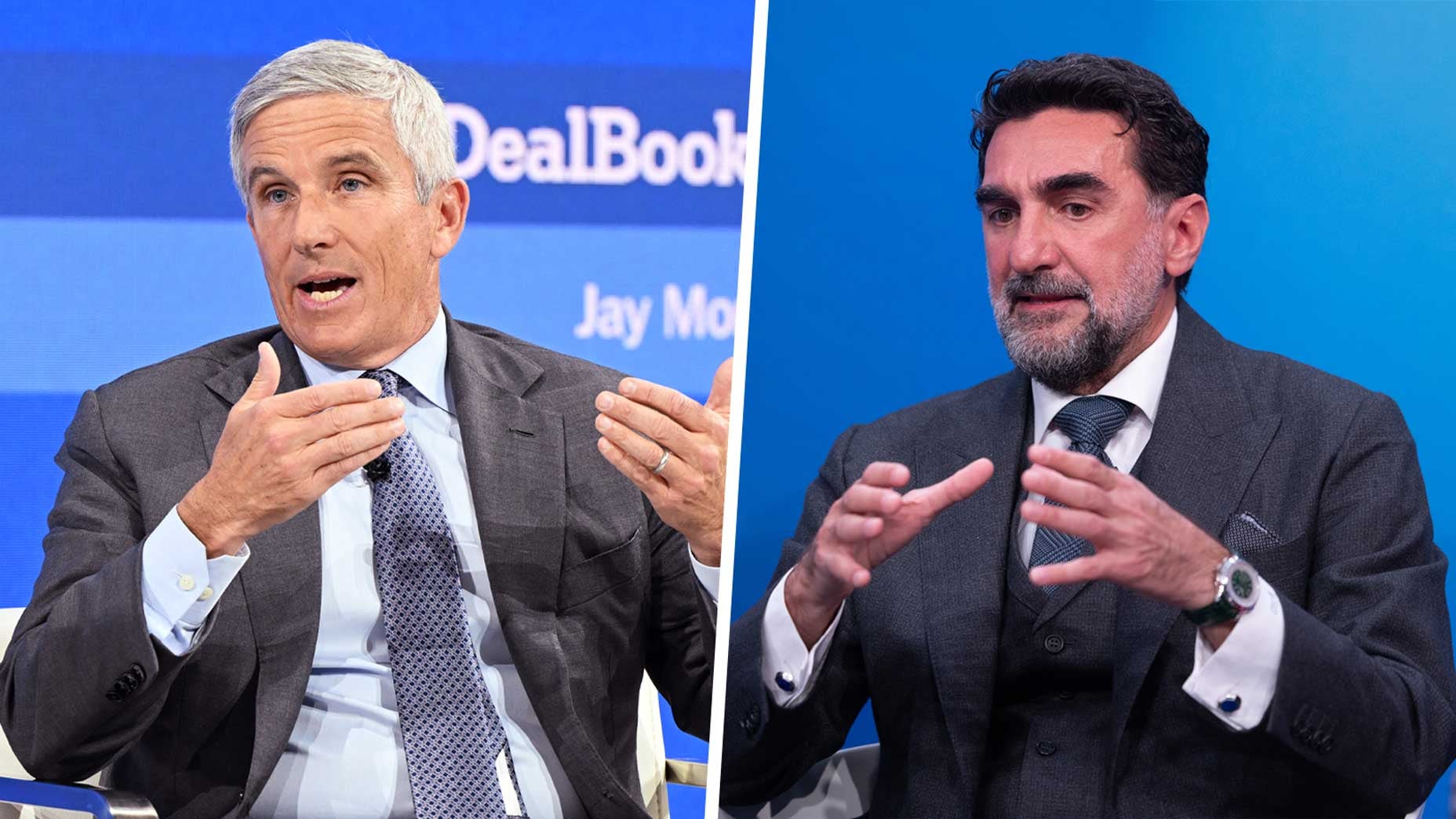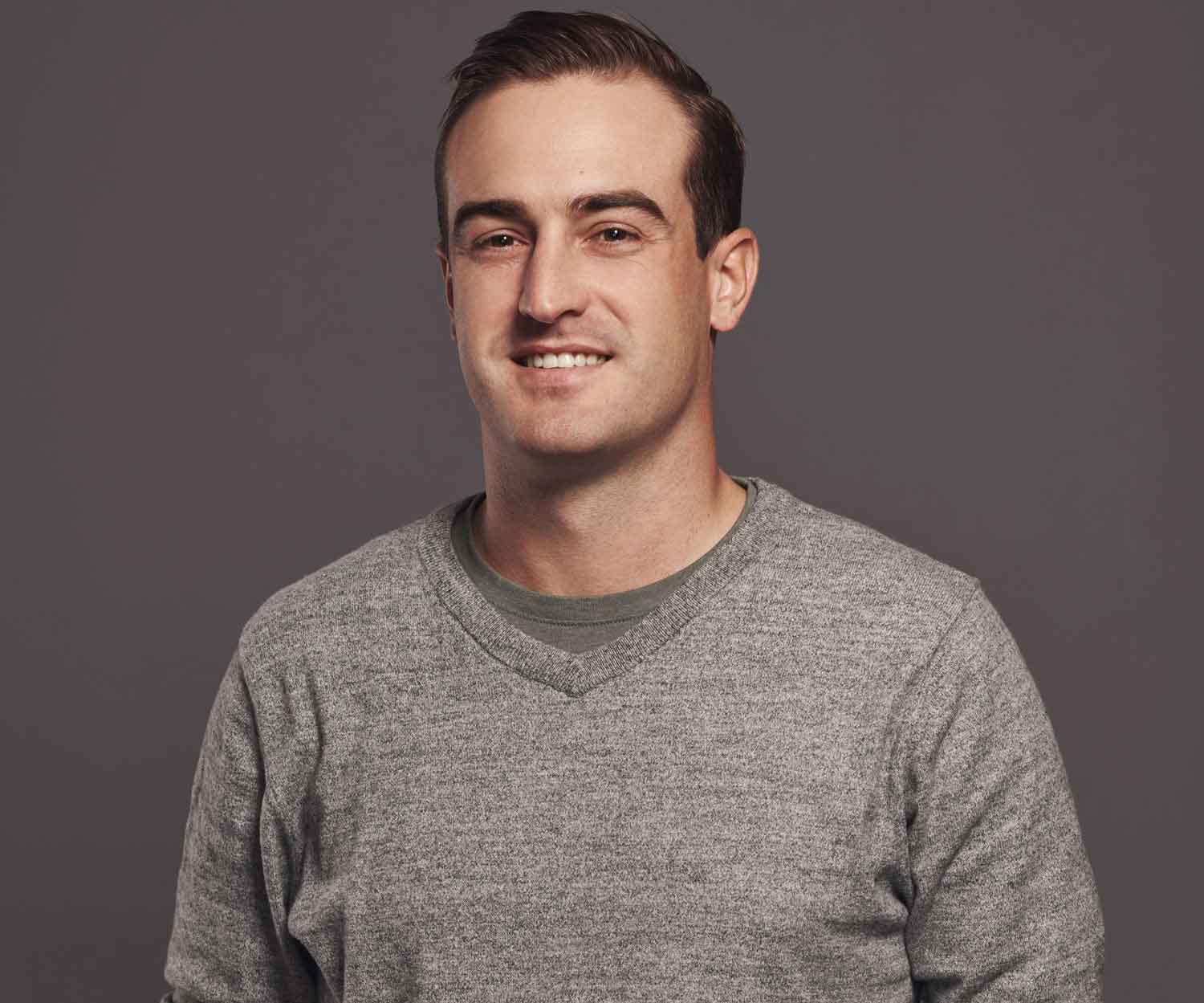Jay Monahan and Yasir Al-Rumayyan, pictured during different speaking engagements in the last 12 months.
Getty Images
Never has a year felt so long and yet so short than the last 12 months in pro golf.
In the spring of 2022, LIV Golf launched. By the spring of ’23, the PGA Tour was convinced it needed to reach a deal with the Saudi PIF. That all happened pretty quickly! But since then? Stagnancy. A grindingly slow churn of modest updates and a musical chairs of board seats. Golf fans are right to wonder what the future looks like, and free to be disgruntled by the lack of progress.
Who is to blame?
The blanket answer is … everyone. The first wave of players who left for LIV Golf, and the others who trickled behind, chasing money over anything else. The Tour executives who used unilateral power to reach an initial agreement without, say, Tiger Woods having the slightest idea. But also Woods himself, among other players, for plodding along, wresting control of decision-making on the policy board, and showing a general distaste for team golf not played in a Palm Beach Gardens dome.
Plenty of blame can go to the PIF for throwing good money after bad, and for thinking its chief, Yasir Al-Rumayyan, could be granted an Augusta National membership with the snap of a finger. These things happened. They’re baked into background conversations and also in documents shared by a U.S. Senate investigation. Some of them were small and others were meaningful, but cumulatively they have led to a sluggish 12 months.
Golf fans who stayed loyal to the product through this period — through senate hearings, late-night demands from top players, sponsor angst, new investment! — would be right to wonder a few things, namely (1) How close was a deal in 2023?, and (2) Is a deal coming soon?
As for the first question, the slowed pace can largely be attributed to Tour players wanting to hit pause last summer. Professional athletes don’t like surprises. Neither do their managers and families. To many pros, the June 6 announcement was a surprise bordering on a slap in the face. As independent contractors, Tour pros are accustomed to signing up for only what they want. Not everyone wanted a deal. Not everyone was comfortable with the idea of LIV golfers returning without sanctions. Players were as vocal as ever, calling for management changes, demanding repercussions, etc. The Tour had to get its house in order before it could proceed.
Even if the details were not perfectly ironed out, the two sides were engaged. They hadn’t reached wedding week and certainly hadn’t walked down the aisle together but proposals were agreed to. Litigation was dropped. And it took just five weeks to put a ring on it. The initial rough layout of a future pro golf schedule that involves both LIV and the PGA Tour was brokered by Keith Pelley and sent to Jimmy Dunne on April 14, 2023. By May 16, the two sides had met in Venice and hammered out the first draft of an agreement. Five weeks! It doesn’t have to be slow, but it has been.
Was the deal close? Close enough that both sides were planning new directors for LIV Golf. Close enough that both sides were envisioning a global schedule without conflict. Close enough that Dunne wanted the sides to reach a definitive agreement before Jay Monahan and Yasir Al-Rumayyan would make an announcement together, broadcasting to the world their new partnership. But … is anything close without Tiger Woods’ blessing?
Which brings us to the second question: Is a deal nearing? There is cause for optimism. But only of the slightest degree.
The two sides recently swapped term sheets, according to the New York Times — essentially an exchanging of information, intentions, etc. — presenting their own view of their offerings. Rest assured, the same sort of swapping took place in secretive meetings a year ago. There should be little surprise about what the PIF wanted then and what its leaders continue to want now: a foot in the golf door, a defined future for team golf, room for PIF companies (Aramaco, new airline Riyadh Air, etc.) to sponsor pro golf in much the same way they do with other sports. But when Adam Scott, a member of the Policy Board, suggested last week that he doesn’t know the PIF’s vision, it tells you something important: It hasn’t fully been explained to him.
So, it’s a good thing that Scott will learn about it this week. He’s a board member of PGA Tour Enterprises — the new for-profit company which would presumably receive any investment from the PIF — and a member of the new transaction sub-committee within the board. That sub-committee is set to meet with PIF representatives in New York this week, according to the Times. That’s Tiger Woods and John Henry (and a few other non-players), with Rory McIlroy calling in from the Memorial Tournament. The heaviest of hitters gathering around the table. It may have taken us 12 months to arrive here, but it’s starting to feel like progress.


